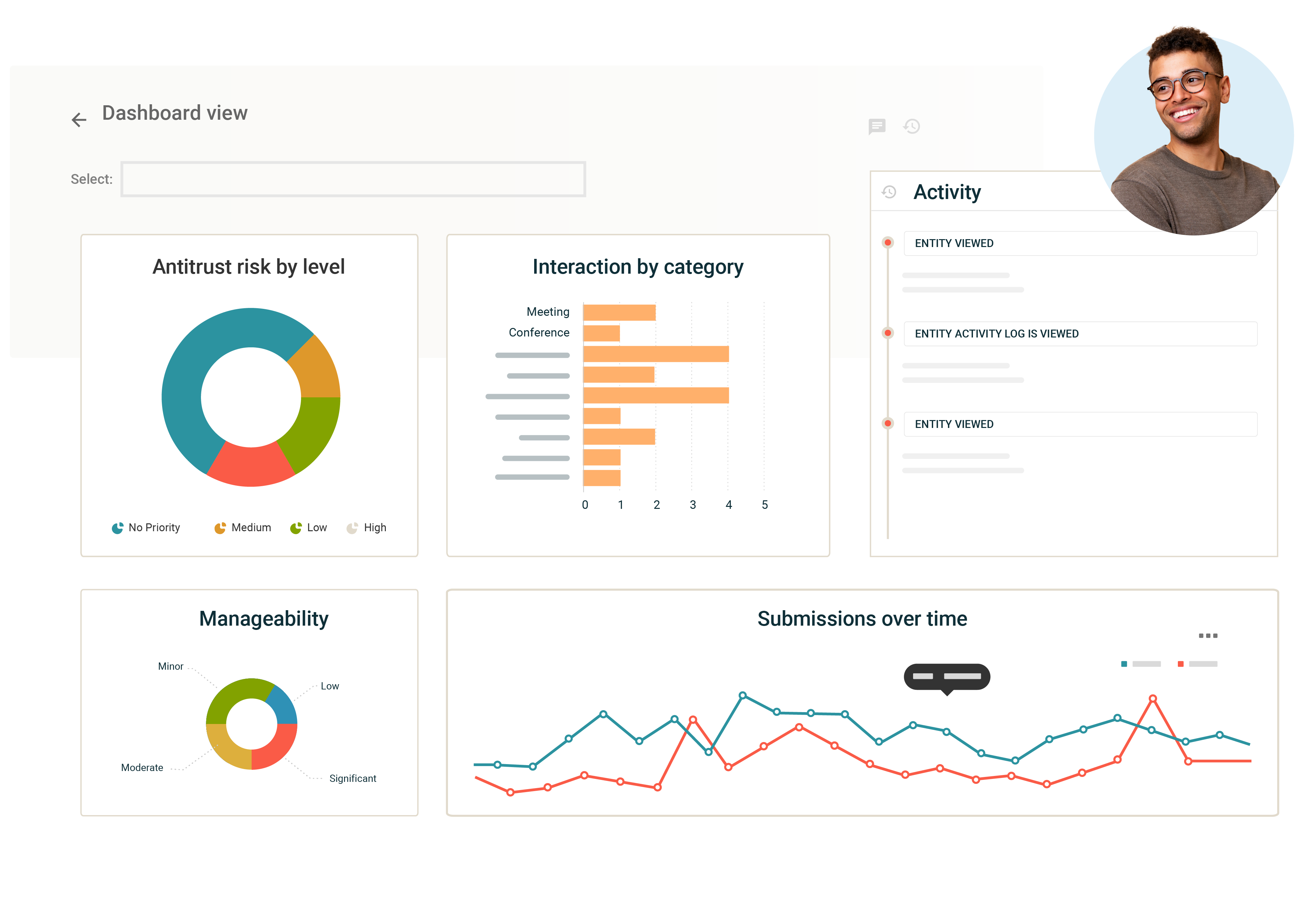Regulations
German Supply Chain Act (LKSG) Compliance Software
Benefit from a centralized, risk-based approach to compliance for the German Supply Chain Act (Lieferkettensorgfaltspflichtengesetz or “LkSG”). Stay on top of your suppliers, empower stakeholders, and operate with the confidence that you have robust and effective procedures in place.

Why GAN Integrity
GAN Integrity is how compliance teams get the tools and expertise to stay ahead of ESG risk. With less effort but more reach, you finally get a better way to do your good work.
See everything – Gain a comprehensive view of the upstream and downstream ESG risks associated with your extended supply chain.
Adapt to anything – Utilize a dynamic solution that adapts to regulatory changes and evolves with your program.
Get all the help you need – Receive dedicated support from GAN Integrity’s team of experts.
Understanding the German Supply Chain Act
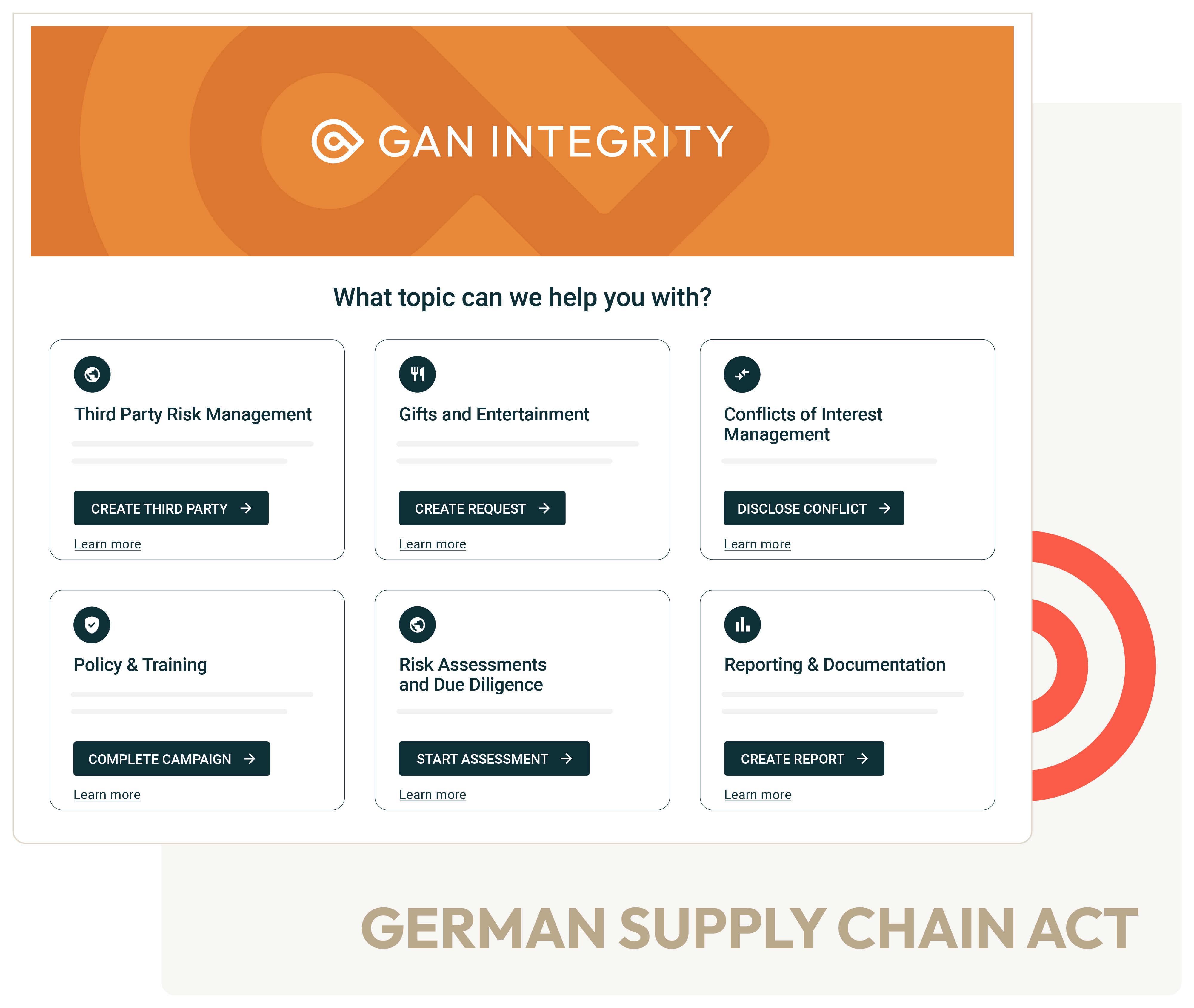
The German Supply Chain Act came into effect in January 2023 and represents a significant milestone in promoting responsible and ethical practices within global supply chains. It mandates that companies operating in Germany with at least 3,000 employees (and from 2024, those with 1,000 employees) must exercise due diligence to prevent human rights violations and environmental damage throughout their entire supply chain.
Companies are required to implement and document measures to identify, assess, and mitigate risks associated with human rights abuses and environmental degradation.
The Importance of Complying With the German Supply Chain Act
Compliance with the act cannot be overstated for companies seeking to operate within the German market. Companies found in violation of the Act face significant penalties, with fines up to €8 million or, for larger companies, up to 2% of their annual global turnover.
Beyond financial penalties, non-compliance can lead to exclusion from public procurement contracts in Germany, a substantial setback for those relying on government contracts. This level of accountability places a considerable emphasis on risk-based monitoring and enforcement of supply chain practices, highlighting the shift towards a more sustainable and ethically responsible global trade framework.
Key Requirements of the German Supply Chain Act
The act outlines steps organizations should take to meet the due diligence obligations across your supply chain. These include:
Risk Management System: Companies must establish a risk management system to identify, assess, and address human rights and environmental risks in their supply chains. This includes regular risk analysis and the implementation of appropriate preventive and remedial measures.
Policy Statement: Companies must issue a policy statement outlining their commitment to human rights and environmental due diligence, detailing their approach to preventing and mitigating risks.
Preventive Measures: Companies are required to implement measures to prevent or minimize identified risks. This includes integrating compliance clauses into supplier contracts and conducting supplier audits.
Remedial Actions: If risks or violations are identified, companies must take appropriate remedial actions, which could include engaging with suppliers to address issues or terminating business relationships as a last resort.
Grievance Mechanism: Companies must establish an accessible grievance mechanism to allow individuals to report human rights or environmental violations. This system should ensure the protection of whistleblowers and facilitate the resolution of complaints.
Documentation and Reporting: Companies must document and publicly report on their due diligence activities annually. This report should include identified risks, measures taken, and the effectiveness of these measures.
In-House Responsibility: Designate a responsible person or department within the company to oversee compliance with the LkSG and ensure ongoing monitoring and improvement of the due diligence processes.
GAN Integrity for the German Supply Chain Act
GAN Integrity’s platform is designed to support companies in maintaining robust ESG compliance programs that meet LkSG requirements.
Supply Chain Due Diligence
Enhance supply chain risk management by consolidating processes, identifying and mitigating risks, and integrating data from various risk intelligence and business systems. Capabilities include:
- Automated risk assessments and continuous monitoring: Monitor suppliers continuously for adverse media, sanctions lists, PEP lists, forced labor, and ESG (Environmental, Social, and Governance) issues.
- High-risk supplier identification and management: Identify high-risk suppliers, manage them effectively, and track actions and mitigations to ensure compliance.
- Integrated due diligence assessments: Perform thorough due diligence across your business operations and workflows for seamless integration and enhanced efficiency.
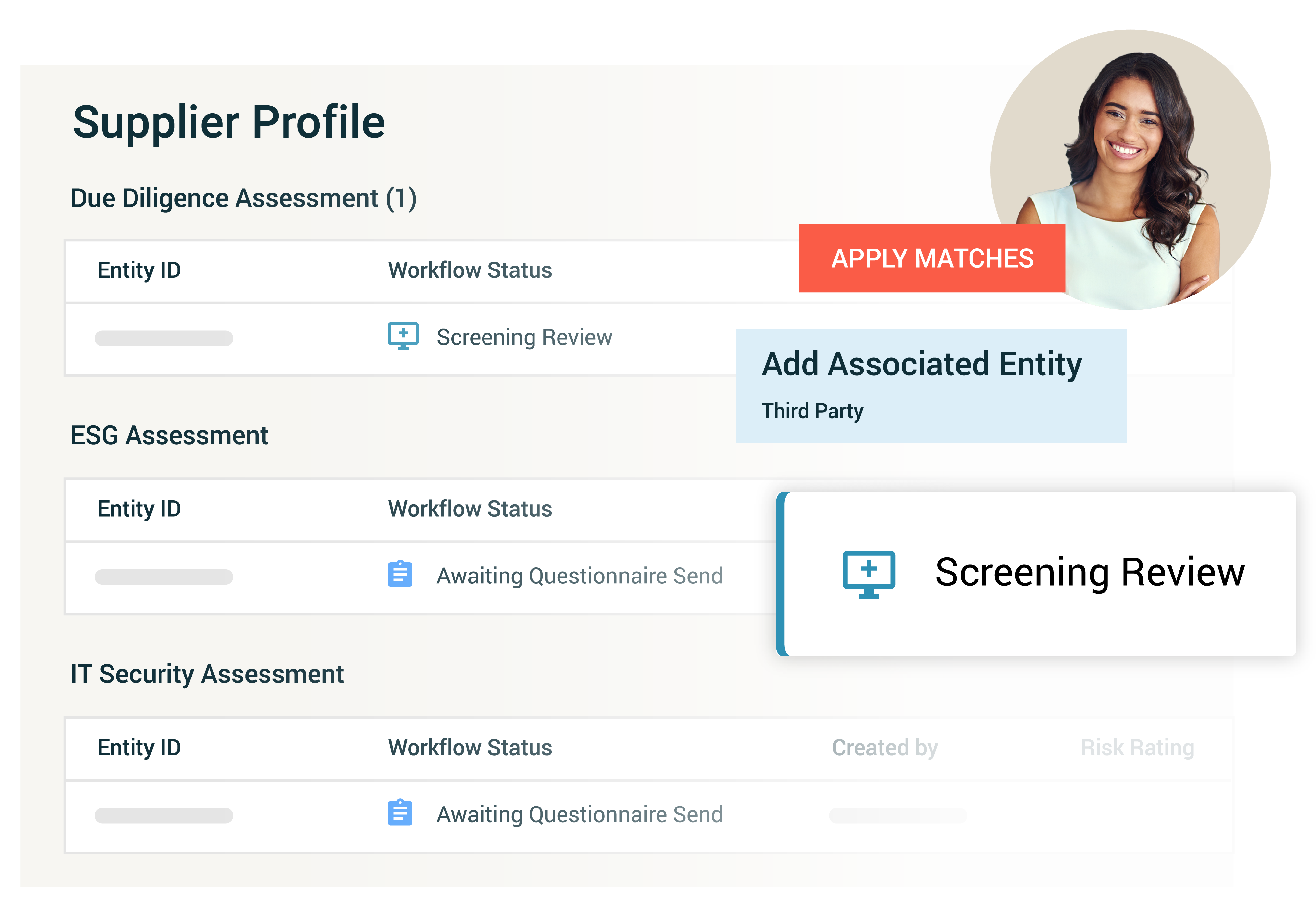
Policy Management
Manage approvals, distribution, and attestation of policies, along with centralized portals for easy access to the latest policies and procedures. Capabilities include:
- Regulatory change management: Identify policies that require updates and timely distribution to employees in response to regulatory changes.
- Automated workflow: Optimize the review and approval process for policies, operating procedures, and work instructions with automated workflows.
- Comprehensive reporting and documentation: Maintain a full audit trail and generate detailed reports to provide clear evidence of compliance to stakeholders and regulators.
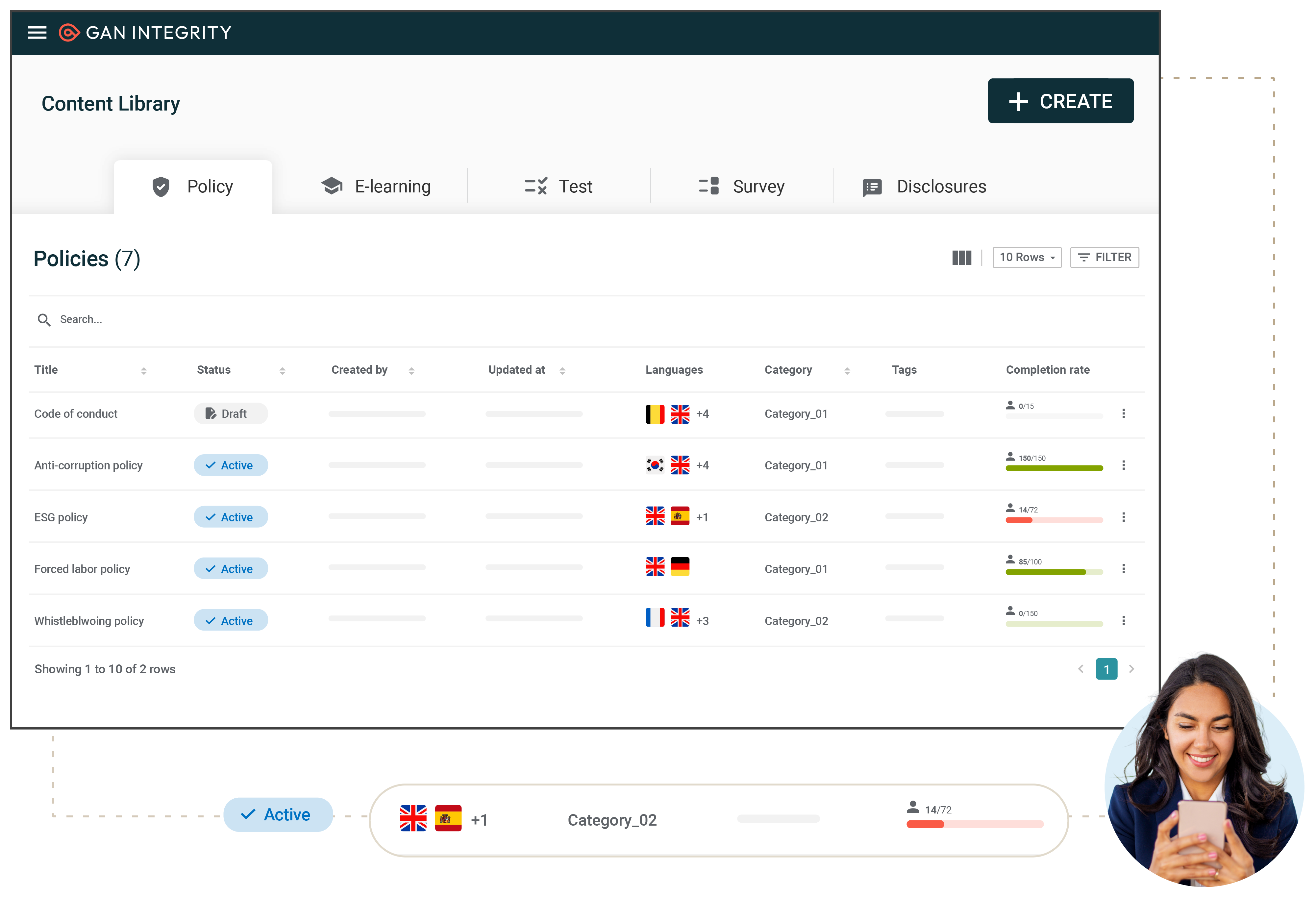
Third-Party Risk Management
Manage risks associated with third parties and assess these against relevant laws and organizational standards. Capabilities include:
- Lifecycle management: Automated workflows for onboarding, risk assessment, issue management, monitoring and off-boarding.
- Integrated due diligence: Initial and ongoing screening of third parties for sanctions, adverse media, forced labor, ESG and more.
- Reporting and analytics: Executive dashboards and reports: Consolidate third party data to identify risks and potential exposure to your organization.
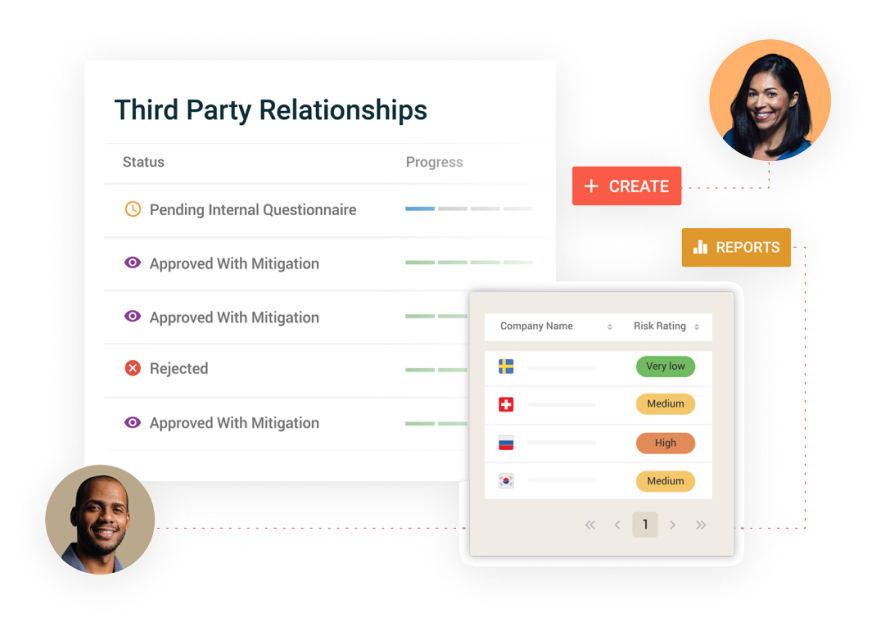
Disclosure Management
Consolidate your disclosures for conflicts of interest (COI), gifts, travel, entertainment, and political and charitable donations or contributions. Capabilities include:
- Policy management: Develop and enforce comprehensive disclosure policies. Educate and engage your workforce with targeted training and policy attestations.
- Flexible disclosure process: Simplify the submission of potential conflicts of interest with user-friendly forms, ensuring easy access for employees.
- Automated approvals and reviews: Enhance compliance with automated approval and review workflows. Quickly escalate notifications to relevant stakeholders to address potential risks.
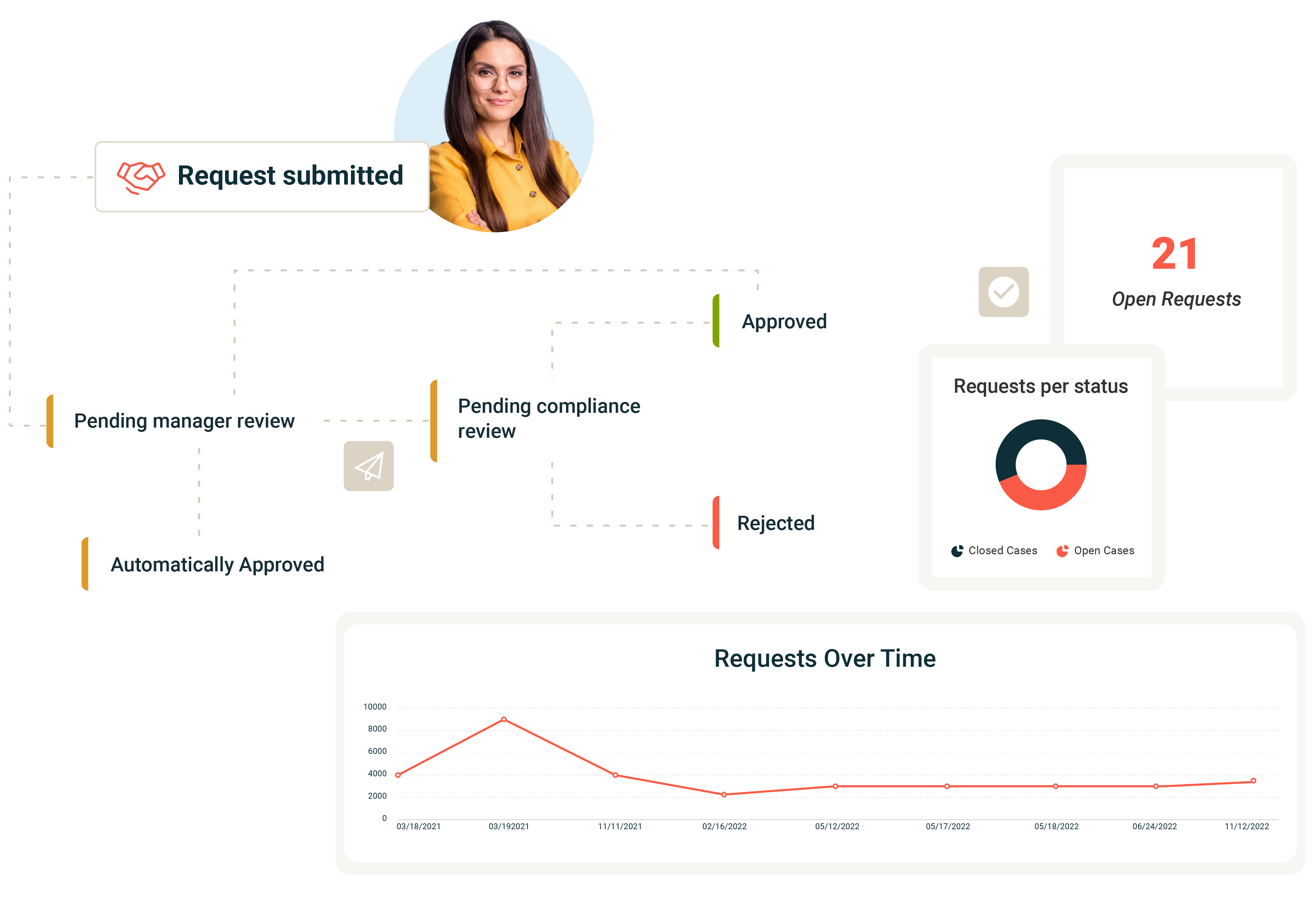
Reporting and Documentation
See everything across your compliance program, and generate reports and dashboards to demonstrate compliance program effectiveness to stakeholders and evidence to regulators. Capabilities include:
- Reporting and analytics: Executive, role-based dashboards to review the effectiveness of your compliance program initiatives.
- Evidence-based compliance: Maintain an auditable trail of all activity with the platform’s integrated and automated audit log.
- Compliance insights: See risk trends and patterns within your program, including third-party and supply chain risk, policies and disclosures.
